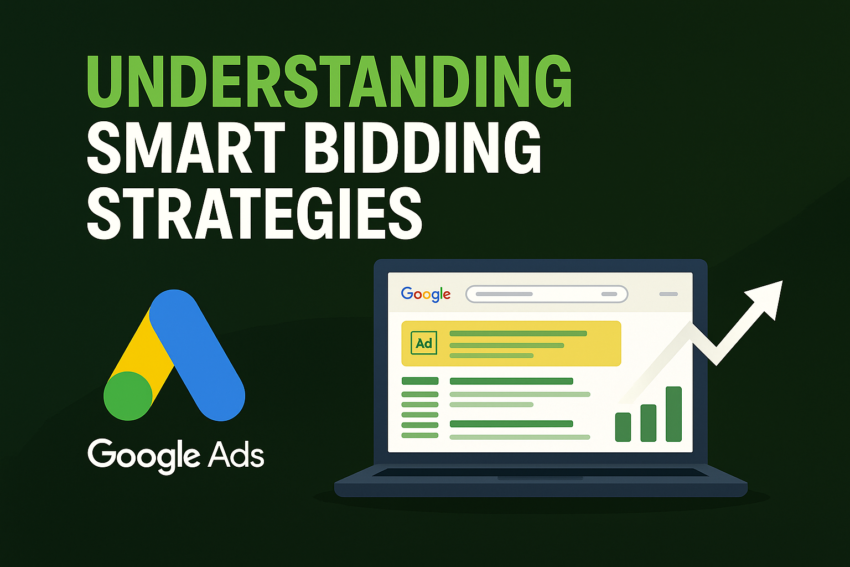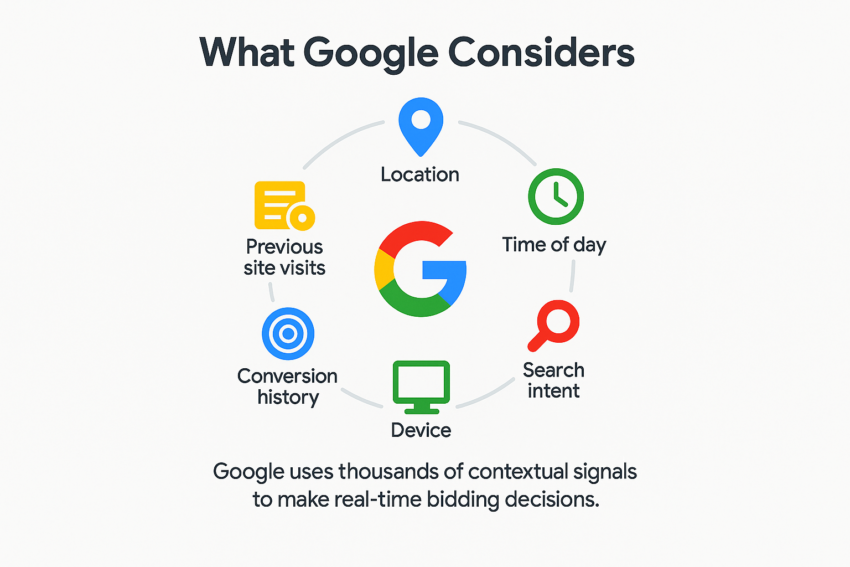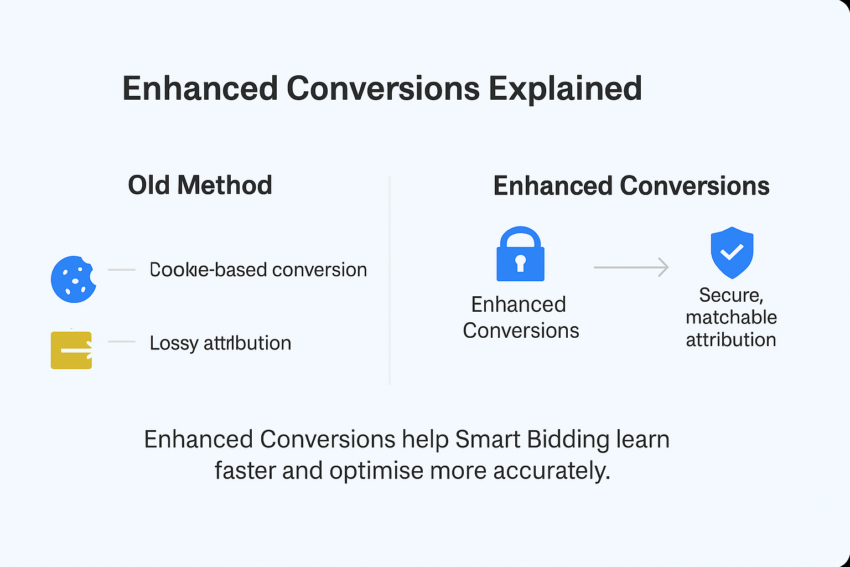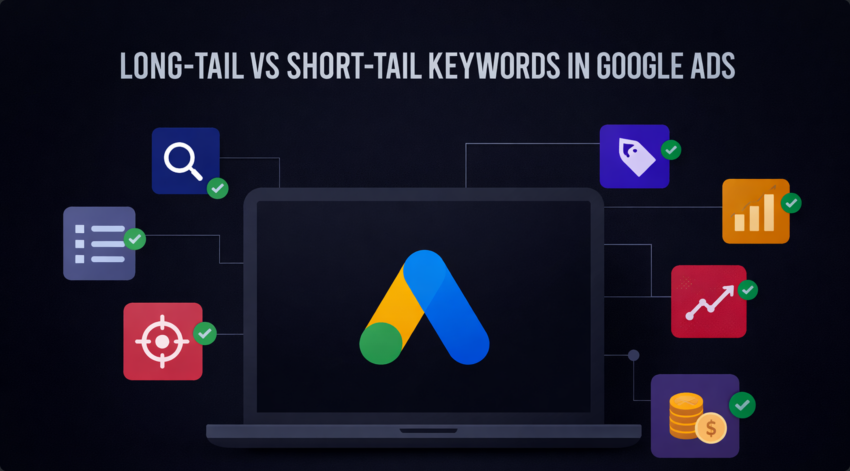Understanding Smart Bidding Strategies: Google Ads Explained

Smart Bidding is one of those terms that is frequently mentioned in the Google Ads world. But what does it mean? More importantly, should you be using it?
After managing and auditing thousands of Smart Bidding campaigns for Australian businesses, I’ve seen how these strategies can scale results, cut wasted spend, and dramatically improve ROI when applied correctly. As a Google Premier Partner agency, our team continually reviews how bidding fits within broader PPC (Pay-Per-Click) and SEM (Search Engine Marketing) strategies, not just to win auctions, but to drive business growth.
Let’s break it down with no fluff or jargon.
What Is Smart Bidding?
Smart Bidding is Google’s machine-learning approach to setting your ad bids automatically and in real time. It’s part of Google Ads’ push toward automation and predictive analytics, designed to eliminate the guesswork from paid search.
It utilises thousands of data points (far more than a human could ever manually calculate) to determine the likelihood that someone will convert. Then it adjusts your bid accordingly, every single time an ad is eligible to show.
Instead of setting a fixed bid for a keyword, Smart Bidding reacts dynamically to things like:
- Time of day
- Device type
- User location
- Previous search behaviour
- How likely are they to take action on your site
In other words, it’s not just bidding smartly. It’s bidding intelligently, in context.

What Happens Behind the Scenes
A lot is happening in the split second between when someone searches and when your ad appears. Every time a Google Ads auction is triggered, the algorithm evaluates a complex mix of user behaviour and environmental signals to make a real-time bidding decision.
It quickly weighs up hundreds (sometimes thousands) of signals:
- Which device is the person using?
- Where are they?
- What did they search for previously?
- What time is it?
- What ad variations have they engaged with before?
Then it predicts whether that user is likely to convert, and decides how much you should bid in that moment.
It’s like having a full-time analyst on your account, optimising every second, 24/7.
When Smart Bidding Works (and When It Doesn’t)
Smart Bidding can be incredibly effective, but it isn’t right for every campaign. Knowing when to use it (and when to hold off) is just as important as setting it up correctly.
It works best when:
- You have accurate conversion tracking in place (ideally through Google Tag Manager and enhanced conversion tracking)
- Your campaigns already have 15+ conversions in the last 30 days
- Your landing pages are sharp, and your offer is clear
If your current setup supports Smart Bidding, it’s a good idea to conduct a tracking audit to ensure your analytics are correctly implemented.
But it’s not a set-and-forget solution. And it’s not ideal if:
- You’re just starting and have no performance history
- You want to control bids at a granular level manually
- You’re in a super-niche space with limited traffic

Tips From Experience
Smart Bidding is powerful, but it requires thoughtful setup and some patience. I’ve seen accounts where switching to Smart Bidding doubled conversion rates — and others where it tanked results because the fundamentals weren’t in place.
After working with dozens of Smart Bidding campaigns, here are a few things that matter:
- Give it time. The learning phase typically lasts 7 to 14 days, although it may be longer. Don’t panic if performance fluctuates early.
- Set realistic expectations. Smart Bidding is powerful, but it’s not a magic wand.
- Monitor, don’t micromanage. Watch performance, but don’t keep switching strategies — it resets the algorithm each time.
- Use audience layering. Combine Smart Bidding with remarketing lists or customer match segments for even better results.
- Implement Enhanced Conversions. This improves the accuracy of your data by sending hashed first-party customer information to Google, which helps the algorithm attribute conversions more accurately.
Get your tracking right. Utilise Google Tag Manager for precise event-based tracking and implement Enhanced Conversions to provide Google with more accurate attribution data.
Final Thoughts
Smart Bidding isn’t something to fear; it’s something to understand. It represents a shift in how we approach campaign management: from less manual tinkering to more strategic oversight.
When paired with solid strategy and clean conversion data — especially when enhanced conversions and GTM tracking are implemented — it’s one of the best tools Google Ads offers for scaling your campaigns and simplifying optimisation.
If you’re still unsure which bidding strategy is right for you or want a second set of eyes on your current setup, you can request a free Google Ads audit and get practical recommendations from our team.
Discover how our Sydney-based Google Ads agency crafts high-performing campaigns, prioritising performance, clarity, and growth.



